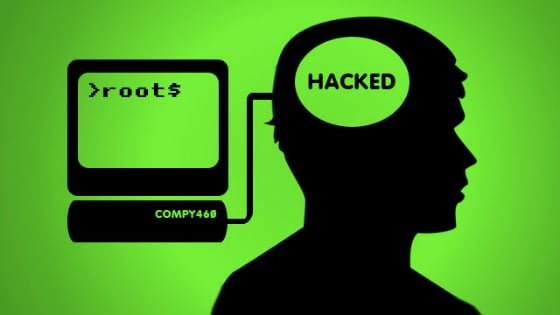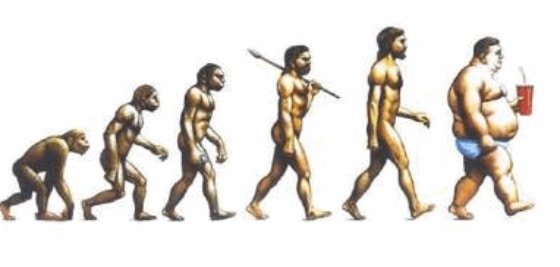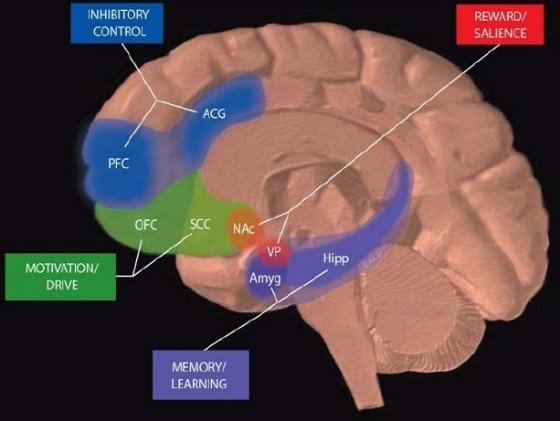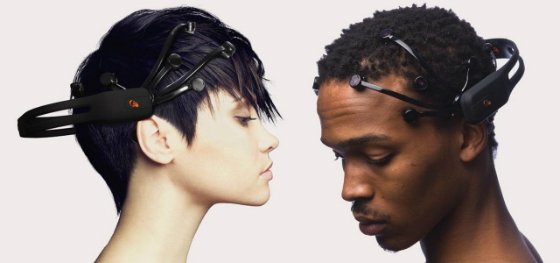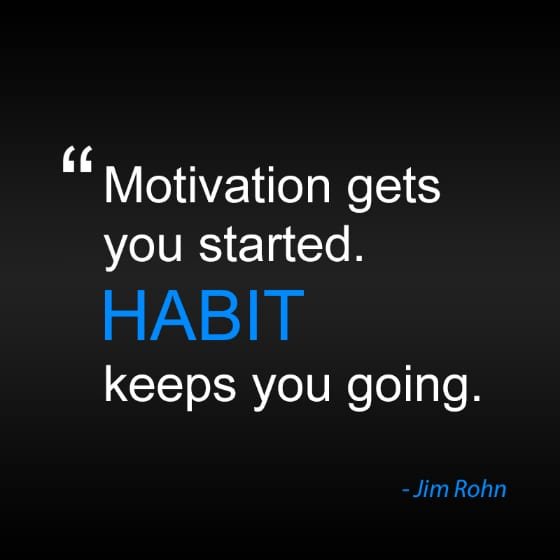This series of posts will explore my interest in the phenomena we commonly call brain hacking, or as I like to call it, Intellect Over Evolution.
The human brain has been evolving for around 2 million years, and one of the main traits of evolution is that it happens very, very slowly. In fact it takes place over a glacial amount of time. That is to say it moves so gradually that we simply don't notice it happen.
So as such, things that were useful to us just 5 minutes ago on an evolutionary scale are not so at the moment. This is because human social evolution, driven by technology, in relation to biological evolution, happens lighting fast.
Put in plain English, it means that some of our instincts are out of sync with our day to day lives, and the instinct I would like to talk to you about today is; addiction.
The Evolution Of An Addict
Have you ever heard somebody say;
"_________ has such an addictive personality"
Or maybe;
"I've got to stay away from those cakes, I have such an addictive personality!"
Maybe you have even spoken these words about a friend or even yourself, in some ways you are wrong, although technically you are completely right.
Let me explain, you are wrong to think that you or any particular person has an addictive personality, whilst others do not. However you are right if you believe everyone has an addictive personality.
Darwin taught us that evolution works through the function of destruction, that is to say that if there is any particular trait in a species or sub species that is of a particular advantage, then all the individuals within that species who do not have the trait, will die.
For example; imagine a planet where there is a forest full of trees that one day, start to emit a noxious gas, that slowly kills any animal that breathes it in. On the ground there are an alien species of a rat type animal.
Some of these animals live on the edge of the forest and start to wander up a near by hill, to look for food. After a while the rat creatures that stay in the forest start to die from the poison gas, and what is worse, their young also die before they have a chance to have babies themselves.
In just a few generations, there are no more forest rats, just hill ones, and the "memory" of forest rats dies with them.
Of course this is a grossly oversimplified version of evolution, however we can take that analogy and look at something like addiction in the human animal, and question why we get addicted to things and what purpose could it possibly serve.
Ultimately addiction is useful as it is a powerful motivator, and it is not just in humans that we see addiction. Give a monkey, rat, or dog, cocaine for a month or so and you will see addictive behaviours in that animal. From withdrawal symptoms to obsessive consumption, it would seem that the term addiction is prevalent throughout the animal kingdom.
This makes total sense as any creature that lived aeons ago without that addictive personality, may not have been that motivated to seek out food, or mate and thus eventually died out.
Whilst we can confidently claim that evolution does not happen at a uniform pace, even within a species or sub species, we can see that addiction has played a hand in the evolution of every animal alive today on planet Earth.
But so what? What does that mean, and how can we use that to our advantages?
The Anatomy Of Addiction
Whether you are getting addicted to something you enjoy, or something that you don't, the mechanism is the same. You actually have to work at getting addicted to something. That is to say, there is a period of time when the brain is getting used to your new habit. The difference is, when you are becoming addicted to something you enjoy, you don't notice this work phase.
The work phase is the point in the addiction whereby you are not actually addicted yet, you still have to work at it.
So if I was an evil drug dealer and I gave you heroin for the first time in your life, you will either hate it, be sick and never take it again. Or you would enjoy the feeling it gave you, so much so, that when I offered you some more the next day, you jump at the chance and take it again.
Now lets imagine I'm a really nefarious, unscrupulous character, and I give you this heroin everyday for 3 weeks. Then suddenly, I ask for money, giving you the excuse that I have to pay for it, and so it is only fair that you do to.
You agree to pay, because by this time, you are addicted, you have gone through the work phase without even realising it and your brain gives you signals that you simply cannot ignore. On the flip side if you had just carried on regardless of being sick that first time, and perhaps a second, third and even fourth time, getting addicted to the drug would have felt like actual work.
Of course heroin is an extreme example, because later down the line it starts to replace your body's own natural endorphins, and therefore you become physically, as well as mentally addicted.
This by the way, is how a lot of heroin addicts say that they got addicted, they were going to a dealer for another less harmful drug, like marijuana, and the dealer started giving them little bits of heroin for free.
Hacking Addiction To Our Advantage
So now you know there is a work phase to any addiction, how can you use it to your advantage? Well it is said that the work phase for any addiction is roughly 23 days.
A few years ago I decided that I wanted to become more motivated and focused, however the problem was that I wasn't motivated and focused enough to make the change. A kind of psychological catch 22.
I discovered a website called Bold And Determined, run by a guy called Victor Pride, he had a program called 30 Days Of Discipline. It cost just under ten dollars, and it basically said that after 23 days of doing this program, that it would be a habit and I would find it easy.
I liked the sound of that for a few reasons, it was an extreme program (it required me to dump a bucket of ice-cold water on my head at 5:30 every morning, ironically when the Ice Bucket Challenge was going around), plus whilst not being into numerology, I have always liked the number 23.
It was the number of my favourite basketball player of all time; Michael Jordan, also the football player David Beckham took up the number when he moved to Real Madrid. The earth tilts at an axis of roughly 23 degrees, and there are 23 pairs of chromosomes in human DNA.
So the number 23 appealed to me; anyway I started the program and it was hard. I often had to remind myself that the difficulty factor, was the exact reason I was doing it.
I remember the day that it got easier with perfect clarity, I had gone on holiday to a friend of mine's boat house in Devon. I woke up at about 4:30, did the required exercise for the day, and had my cold shower and just found it, well, easy.
It was in fact Day 25, but from that moment on, getting up early (I ditched the cold showers, I live in a cold country and I don't think I want to get addicted to that) and exercising was easy to me. So much so, that I started to look for other 30 day challenges.
What does this mean for you though?
Well I found that the best way to get through this 30 days, was to look forward to the next day. The easiest way to look forward to something, is when you're thinking about it, to have a smile on your face.
It really is that simple.
Another brain hack is to sing, whistle or hum, whilst you're doing the work phase activity. This is because you don't tend to feel like singing when you're in a bad mood. Ergo if you do start singing, your brain does not know the difference, and starts to pump you full of your feel good hormones.
If you sing as you're doing a particular activity, well then your brain feels you must love that activity, and starts to associate feelgood hormones with whatever it is you're doing.
This is why US Marines sing those songs as they march for hours and hours on end, they are literally telling their brains; "look, I really like this shit, get used to it!"
A Good Habit Is Hard To Break
The beauty about going through the work phase is that it feels incredibly wonderful to form a good habit like going to the gym, not smoking, or getting up early and working on your personal projects.
In fact the more you do it, the more you want to do it, soon you will get to the place that I am in now, where I am in the habit of forming good habits. I am constantly looking for the next difficult challenge to take on.
Whether it is learning Java script or Chinese, or even relearning to swim again, it all feels amazing. The best thing about it is the work phase no longer feels like work. It's just the bit where whatever I'm doing has not quite stuck yet.
So join me, think of something you have wanted to do; or not do, for a while now, and start to use your intellect to conquer your evolutionary past!
Take care and good luck.
Cryptogee
WHAT HAVE YOU HAD A BURNING DESIRE TO DO, OR HAVE BEEN PUTTING OFF TILL TOMORROW FOR MONTHS OR EVEN YEARS? DO YOU FEEL LIKE YOU CAN HACK YOUR WAY TO GOOD HABITS? LET ME KNOW BELOW!

